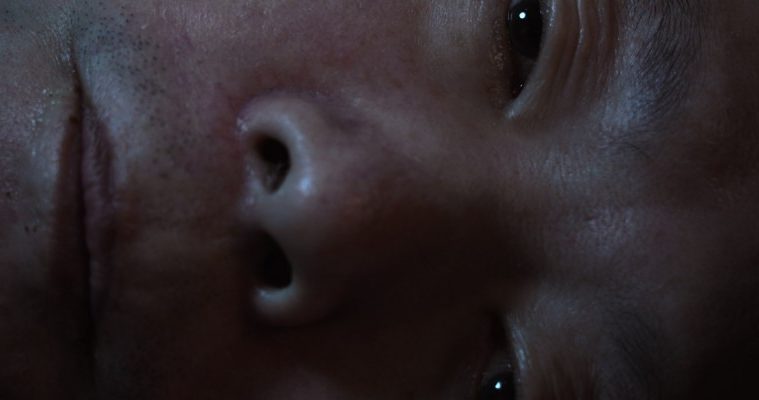Gaining notoriety in 1981 when he murdered and ate a Dutch woman in Paris, Issei Sagawa has earned the ghastly label of the world’s most famous cannibal, a title that reflects on not just his own sickness but the ensuing media “phenomenon” that surrounded him. A quarter century later, and no current media sensation other than a recent Vice documentary to really capitalize on, he’s the subject of his own feature film.
Thus for Véréna Paravel and Lucien Castaing-Taylor to make a documentary film out of him, one that under a presumed experimental guise, still essentially seeks to provide biography and psychology to the man, comes a nagging feeling of skepticism. As opening with the onscreen text: “This film does not seek to justify or legitimize that crime,” the tricky question of distance, and what is exactly behind the specific impulse of psychologizing or providing sympathy for this man, emerges. The thanks to Joshua Oppenheimer in the credits brings to mind his The Act of Killing, another documentary revolving around a reprehensible subject, that at least to this writer, came as an abject failure. The issue with that specific film was in how it gave too much a platform to the killers at hand, the feeling that the director was ultimately a little too seduced by the perversity of his subject.

What Sagawa presents in terms of an interesting story is that he was controversially not imprisoned due to a legal technicality, meaning that he’s been forced to essentially make a “living” off of his crimes. He’s exploited his notoriety by starring in pornography and creating vile manga based off himself, which the film makes note of at certain points. While the filmmakers wisely don’t make any effort to show his personality to an audience, and thus don’t overly attempt any kind of critique of systematic bloodlust, it can’t help but feel like simply watching the film is an implication of yourself.
Though if presenting Caniba as simply an excuse for Harvard Sensory Ethnography Lab-approved aesthetics is supposedly enough to ostensibly justify its existence, there’s still the sense that duo are a little limited in this case. Formally speaking, the film is instantly more contained than their previous collaboration Leviathan, often trapped in a room instead of the open sea. Shooting Sagawa’s face in close-ups, which he himself openly refers to as “hideous” and is truly the kind of mug you don’t see anywhere outside of maybe a Bruno Dumont picture, it’s hard not to detect the pleasure they seem to get out of using him as a cinematic subject.

Of course once it shifts gears to encompass more of his personal history; including his privileged background and his relationship with his protective brother, you feel the filmmakers reaching a little to make it feature-length. It’s questionable how much they actually analyze the subject outside of the admirably dull opening minutes, in which we’re trapped in both literal and figurative darkness; piercing close-ups on his sharp face or decrepit hands which bear the mark of time.
There’s still the feeling that Caniba is a little too satisfied with the instant revulsion at hand, yet afraid to push into deeper psychology, as if not extending much beyond Sagawa’s own readymade link between sexuality and cannibalism, the ugly rich kid’s lustful entitlement realized to gruesome ends. As disturbing as the film can be, at the end of the day one doesn’t really take much away from it.
Caniba screened at the Toronto International Film Festival and opens on October 19, 2018.

